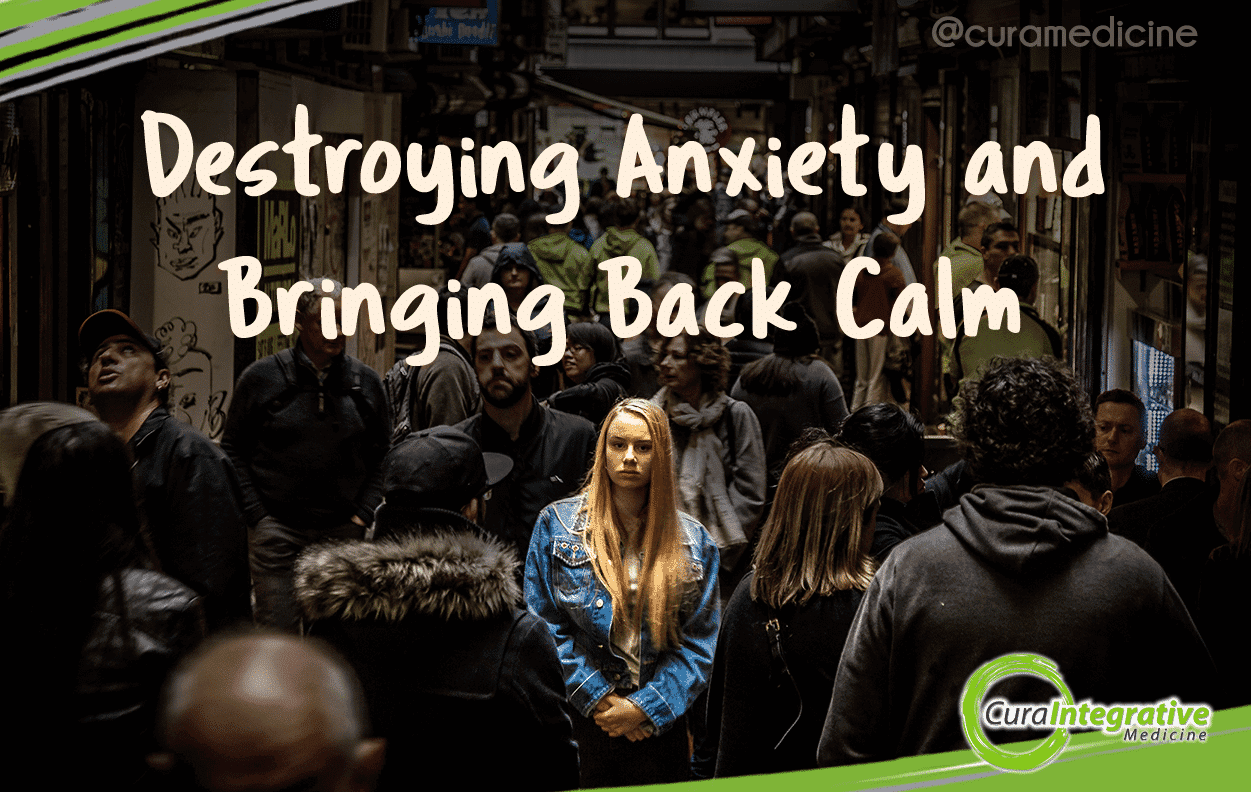Koji is a less known superfood found in a variety of macrobiotic foods. Containing Aspergillus oryzae, koji is used to make foods such as miso, amazaki and tamari. Read More…

Destroying Anxiety and Bringing Back Calm
Posted 25 May '17
Everyone experiences anxiety from time to time, it’s a natural response to stress! To most people, it could even be a motivator to push you to finish assignments and projects, but some people have it worse. Anxiety stirs up uncomfortable feelings when faced with even the simplest of everyday situations and is frustrating when it dominates day-to-day activities.
It gets to the best of people, and it’s a feeling that should not be ignored, it may be the first sign to excessive psychological anxiety.
How does it show?
There are three sensations of which anxiety show symptoms from:
-
Physical:
- Racing heart and restlessness
- Hot flushes, sweating and skin clamminess
- Rapid breathing, short breaths or a feeling of choking
- Chest pain or discomfort, muscle tension
- Nausea and/or diarrhea, frequent gastrointestinal upsets
-
Emotional:
- Excessive worry
- Obsessive thinking
- Sensitive to comments or ‘on-edge’
- Startled or jumpy response
-
Cognitive:
- “Something wrong’s going to happen.”
- “I have to be 100% sure.”
- “What if people make fun of me?”
- “How can I get out of it?”
- “What’s wrong with my mind?”
- “What’s happening to me?”
Anxiety occurs in response to a key stressor, which produces an intense and excessive physical and emotional sensations. It affects one’s entire life and could interfere with work, school, and daily life. Instead of avoiding the symptoms by avoiding some aspects in life, one should seek help from a health practitioner, and conquer the monster.
Overcoming Anxieties
Herbal medicine is a proven helpful aide in overcoming anxieties, along with deep rest and meditation. Below are some herbs that could relieve the emotional state of a person.
- Chamomile – Commonly taken as tea or liquid extract, chamomile has been used to ease the mind and calm frazzled nerves.
- Passion Flower – This helps decrease a person’s sense of restlessness and settle nervous stomachs by increasing calming neurotransmitters; this also helps sooth the mind, decrease tension and lessen irritability.
- Siberian ginseng – This is usually given to extra-sensitive patients who get weepy when they feel anxious or stressed.
- Zizyphus – An herb used in Chinese formulas which is a known anxiolytic which cools, calms and reduces a person’s restlessness.
- Green and white teas – These teas increase alpha waves in the brain which help people feel calmer.
- Bupleurum – A useful herb which minimizes a person’s production of excessive nervous energy which causes stress and the feeling of unrest
- Ashwagandha – Known to soothe an agitated mind, it contains flavonoids and active ingredients of the withanolide constituents. Often referred to as ‘winter cherry’.
- Magnesium – A supplement which soothes sore muscles, lower blood pressure and reduce stress.
- Lavender – Its amazing scent helps put agitated babies to sleep and minimise the feeling of being too ‘on-edge’ by calming frazzled nerves.
- Kava – A known herb in the Polynesian regions which calms down a worried mind. Often brewed to create drinks that reduce anxiety levels with its sedative quality without interrupting the cognitive system of a person.
Your Personal Support Group
Creating social connections and making personal initiatives could help improve a person’s well-being. Some ways to manage stress and anxieties are:
- Keeping in touch with friends and establishing your support circle
- Outdoor Exercises which could help alleviate symptoms for hours
- Eating healthy food has been proven to improve mental state; green and dark green leafy vegetables and protein at each meal and avoiding refined and sugary foods could help balance your mood
- Avoid caffeine
- Breathe! – Deep breaths and meditation can help calm down your mind





